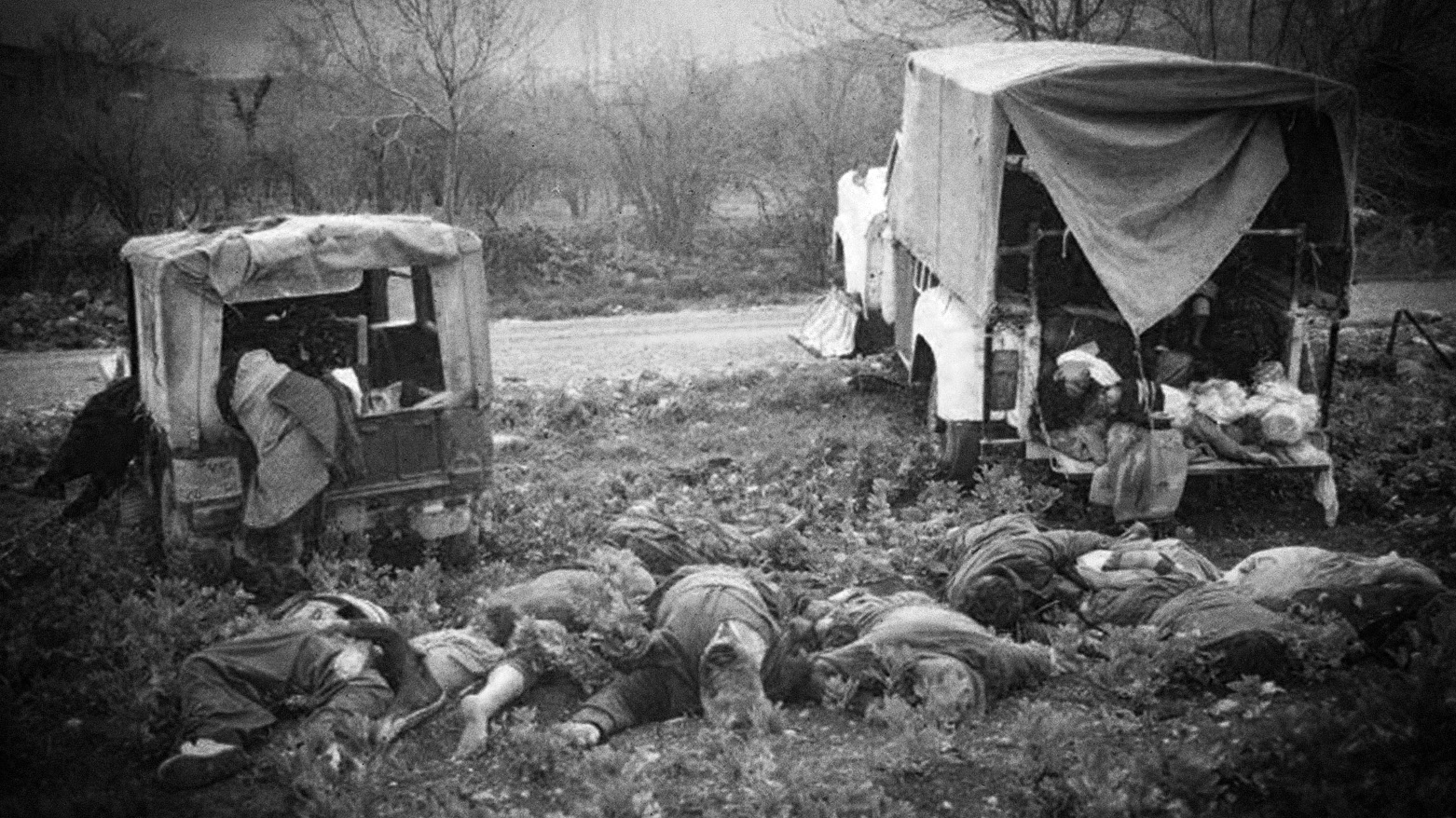Iraq Declares March 16 a National Holiday to Honor Halabja Victims
This decision marks the first time the federal government has formally recognized the anniversary of the Halabja genocide as a nationwide day of remembrance.

ERBIL (Kurdistan24) – The Iraqi Federal Government has officially designated March 16 as a national holiday, commemorating the Halabja chemical attack and other crimes committed under Saddam Hussein’s Baathist regime.
This decision marks the first time the federal government has formally recognized the anniversary of the Halabja genocide as a nationwide day of remembrance.
In an official statement released on Monday, the General Secretariat of the Federal Council of Ministers announced that Sunday, March 16, 2025, will be a public holiday across all Iraqi institutions.
The decision was made under Article 1/First/L of the Official Holidays Law No. 12 of 2024 and serves as an acknowledgment of the atrocities committed by Saddam Hussein’s regime, including the Halabja massacre, the Anfal campaign, mass executions, uprisings, assassinations of scholars, and the systematic targeting of political parties.
While the Kurdistan Regional Government (KRG) has long observed March 16 as a solemn day of remembrance, this marks the first time the Iraqi Federal Government has extended the recognition to the entire country, underscoring the national significance of Halabja’s suffering and resilience.
The Halabja Genocide: A Dark Chapter in Iraqi History
The Halabja chemical attack, carried out on March 16, 1988, during the final days of the Iran-Iraq War, remains one of the most heinous war crimes of the 20th century. The attack, orchestrated by Saddam Hussein’s Baathist regime, involved the use of chemical weapons, including mustard gas and nerve agents, targeting the Kurdish civilian population of Halabja.
The massacre claimed the lives of over 5,000 innocent Kurdish civilians, including women, children, and the elderly, while leaving more than 10,000 others severely injured. The survivors of the attack continue to suffer from chronic health conditions, genetic disorders, and psychological trauma.
Iraq’s Refusal to Acknowledge Responsibility
Despite the overwhelming evidence of the use of chemical weapons, the Iraqi Baathist regime never expressed remorse for the Halabja attack. Instead, it defended its use of chemical weapons during the Iran-Iraq War by claiming that "every nation has the right to protect itself against invasion." However, this justification violates international law, as Iraq was a signatory to the 1925 Geneva Protocol, which explicitly prohibits the use of chemical weapons in warfare.
According to the Protocol for the Prohibition of the Use in War of Asphyxiating, Poisonous or Other Gases, and of Bacteriological Methods of Warfare, signed in Geneva on June 17, 1925, and ratified by Iraq, the use of chemical and biological weapons is universally condemned and legally prohibited.
Despite this, the Baathist regime deliberately ignored these obligations, leading to one of the worst chemical attacks in modern history.
A Step Toward Justice and Recognition
The federal recognition of March 16 as an official holiday represents a significant step in Iraq’s acknowledgment of the crimes committed against the Kurdish people. For years, Kurdish leaders and human rights advocates have called on Baghdad to recognize the Halabja genocide, urging that justice be served for the victims and survivors.
By officially marking this date, the Iraqi government signals its commitment to historical accountability, reinforcing the importance of honoring the memory of Halabja’s victims and ensuring that such atrocities never happen again.
Decades after the attack, Halabja remains a symbol of Kurdish resilience and the ongoing struggle for justice. On March 1, 2010, the Iraqi High Criminal Court recognized the chemical bombing of Halabja on March 16, 1988 as an act of genocide.
However, survivors and advocacy groups continue to demand greater efforts in securing reparations, medical aid, and international recognition. The scars left by the Baathist regime’s crimes remain deeply embedded in the collective memory of the Kurdish people, with Halabja serving as a reminder of the consequences of dictatorship, repression, and ethnic persecution.
With this new federal designation, March 16 will now serve as a solemn day of reflection for all Iraqis. The move aims to foster national unity and serve as a reminder of Iraq’s painful history, while ensuring that future generations learn from the past.
As Iraq and the Kurdistan Region commemorate the victims of Halabja, this national holiday will offer a moment to honor those lost, support survivors, and reinforce the nation’s commitment to human rights and justice.
